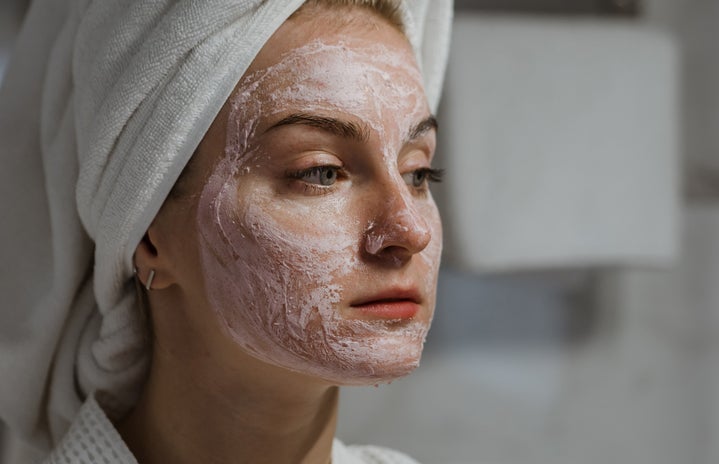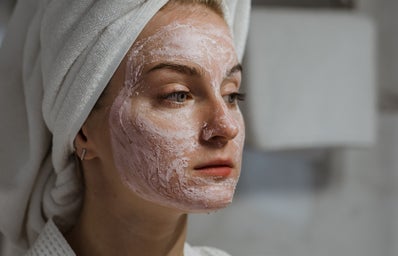The day the dreadful Open Book Examination’s finally ended, I decided to treat myself by practicing some much needed self-care. I lit a vanilla-scented candle, put on Taylor Swift’s new album, suffered through Spotify’s “Download your tunes for the day…”), and began my ‘relaxing’ skin care routine. Sadly, this did not pan out as well as I had hoped. I had not anticipated my mother interrupting my ‘unwind time’ to say that lighting a candle for no reason was stupid and not to mention, a fire hazard. More importantly, I had expected to feel well-rested after taking care of myself. By the end of an elaborate seven-step skincare ritual, I was a lot of things – insecure, irritated, tired. Rested was not one of them.
As of 2020, the self-care industry is worth 450 billion dollars. Gwyneth Paltrow’s wellness and lifestyle brand Goop aims to “nourish the inner aspect.” Their products include an amethyst crystal-infused water bottle and a rose quartz egg that supposedly helps one “harness the power of energy work.” The pandemic has led to an increase in conversations surrounding health and wellness and it is companies like Goop that have profited off of this. Can you truly feel good about yourself if you do not invest in the products we have specially designed to help you do so? These corporations through their targeted social media advertisements have forced us to believe that in order to care for yourself in the best way, you must spend money.
Unfortunately, the yoga retreat and bubble tea drinking aesthetic is not something everyone can subscribe to. Even when it comes to simpler activities like writing down your thoughts and feelings to better process your emotions, companies will have you believe that you need to purchase their expensive journals and pretty stationery to do this effectively. Taking out time to care for oneself is a privilege in itself. When there are such high standards that one is expected to aspire to, it becomes even more of a luxury. If you have been conditioned to believe that self-care should look a particular way, you are bound to feel unsatisfied if you cannot replicate it. This is the exact opposite of what the practice is supposed to achieve in the first place.
“Caring for myself is not self-indulgence, it is self-preservation, and that is an act of political warfare.” said civil rights activist and writer Audra Lorde. The idea of self-care that we have been practicing of late is hardly the act of political warfare that radical feminists had intended. Self-care isn’t just ‘me time’. It’s very foundation is based on remembering to take care of one’s needs in order to better serve our collective interests as a community. When we become dependent on commodities for our form of self-care we put our power in the hands of a company. As a result, we strip ourselves of the agency that this act is supposed to provide.
The modern self-care idea is marketed in such a way that it specifically targets women. In a patriarchal society, a woman putting her own needs first is a feminist act. However, we live in a world that feeds off our insecurities. At a time when women are slowly starting to realize both these things, brands have conveniently jumped on the self-care bandwagon to sell us expensive products that make us feel like we’re doing something for ourselves instead of trying to conform to societal standards of beauty. Retail therapy has become almost synonymous with self-care as companies convince us that we need flawless skin, perfectly shaved legs, and sparkly pink bath bombs to feel better after an exhausting week.
Self-care does not need to be expensive or even particularly relaxing. On a difficult day merely getting out of bed can be a form of self-care. So can listening to music while taking a stroll or finally going to therapy! However you choose to practice it, keep in mind that while self-care can provide a little ‘pick me up’ it isn’t a quick fix to what are more deeply rooted issues. Making sustainable changes and developing healthy habits are just as important.


